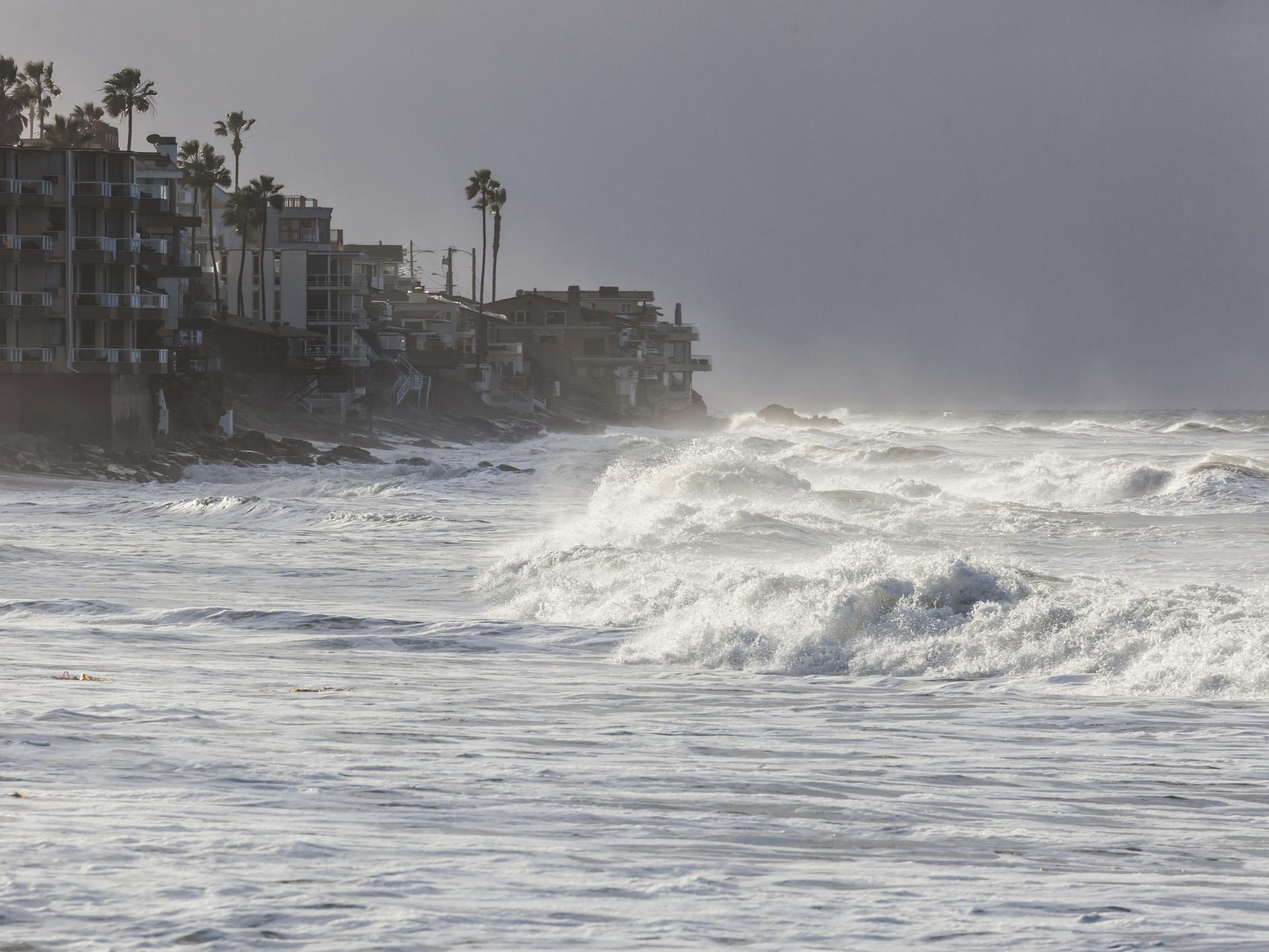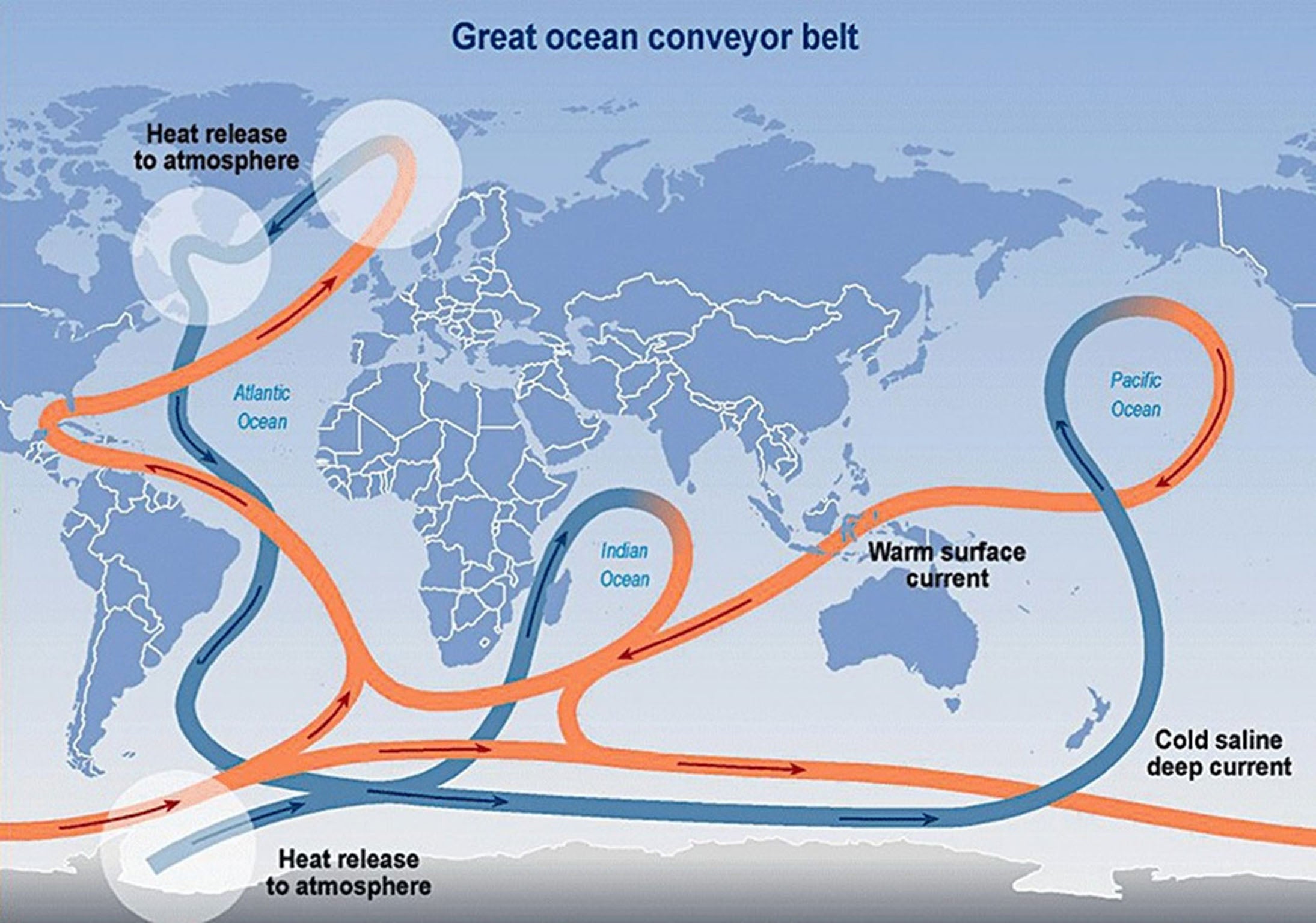Gulf Stream current at 'record low' with potentially devastating consequences for weather, warn scientists
Disruption of ocean circulation is thought to be driven by global warming, and could lead to sea level rise and extreme events like storms

Your support helps us to tell the story
From reproductive rights to climate change to Big Tech, The Independent is on the ground when the story is developing. Whether it's investigating the financials of Elon Musk's pro-Trump PAC or producing our latest documentary, 'The A Word', which shines a light on the American women fighting for reproductive rights, we know how important it is to parse out the facts from the messaging.
At such a critical moment in US history, we need reporters on the ground. Your donation allows us to keep sending journalists to speak to both sides of the story.
The Independent is trusted by Americans across the entire political spectrum. And unlike many other quality news outlets, we choose not to lock Americans out of our reporting and analysis with paywalls. We believe quality journalism should be available to everyone, paid for by those who can afford it.
Your support makes all the difference.Catastrophic changes in global weather patterns could be on the horizon as scientists confirm the warming Atlantic current has reached a “new record low”.
The Gulf Stream current, which has not been running at peak strength for centuries, is now at its weakest point in the past 1,600 years.
Climate change resulting from rising levels of carbon dioxide in the atmosphere is a likely cause of this phenomenon.
The Atlantic meridional overturning circulation (Amoc), the system of currents that transports warm water from the tropics via the Gulf Stream to the North Atlantic, plays a major role in regulating the world’s climate.
A fictional depiction of Amoc’s collapse was portrayed in The Day After Tomorrow, and while the film’s events were exaggerated, scientists say severe weather events are likely to result from the ongoing changes.
If the system continues to slow down, there could be weather disruption across the US, Europe and Africa, and sea levels could rise rapidly on the US east coast.
Two international teams of scientists have undertaken extensive analyses of sea surface temperature data and underwater sediments. Both studies were published in the journal Nature.
In both papers, the researchers found Amoc had slowed down by roughly 15 per cent, although the timescales over which this weakening had taken place were very different.
While one study found the dip had occurred over the past 150 years, the other concluded it had happened rapidly since the 1950s.
“We detected a specific pattern of ocean cooling south of Greenland and unusual warming off the US coast – which is highly characteristic for a slowdown of the Atlantic overturning, also called the Gulf Stream system,” said Levke Caesar from the Potsdam Institute for Climate Impact Research, the lead author of one of the studies.
“It is practically like a fingerprint of a weakening of these ocean currents.”

While computer simulations have long predicted changes in ocean circulation, brought about by rising carbon dioxide levels, these studies provide direct proof this is happening.
“The evidence we’re now able to provide is the most robust to date,” said Professor Stefan Rahmstorf from the Potsdam Institute, who conceived the study with Ms Caesar.
“We’ve analysed all the available sea surface temperature datasets, comprising data from the late 19th century until the present.”
The other study used ocean sediments to explore the weakening Amoc over a longer period of time.
Taken together, the studies provide a comprehensive analysis of the phenomenon, and the scientists suggest climate change is likely to be driving the effects they are seeing.
Increased rainfall as well as melt water from Arctic sea ice – both of which are the result of global warming – are thought to be diluting the waters of the northern Atlantic.
This reduces the ocean’s salt content, making it less dense and stopping water from sinking to the seabed. This in turn slows down Amoc, which is driven by the flux of water with different densities.
Previous work has demonstrated that the decline of Amoc has the potential to exacerbate sea level rise in coastal US cities like New York and Boston, as well driving extreme weather events such as storms and even heatwaves.
While the recent studies did not attempt to predict the future of Amoc, the researchers warned that climate change is likely to continue driving this worrying trend.
“If we do not rapidly stop global warming, we must expect a further long-term slowdown of the Atlantic overturning,” said Dr Alexander Robinson of the University of Madrid, one of the study authors.
“We are only beginning to understand the consequences of this unprecedented process – but they might be disruptive.”
Join our commenting forum
Join thought-provoking conversations, follow other Independent readers and see their replies
Comments